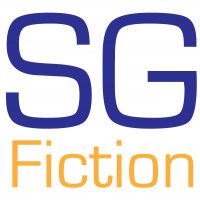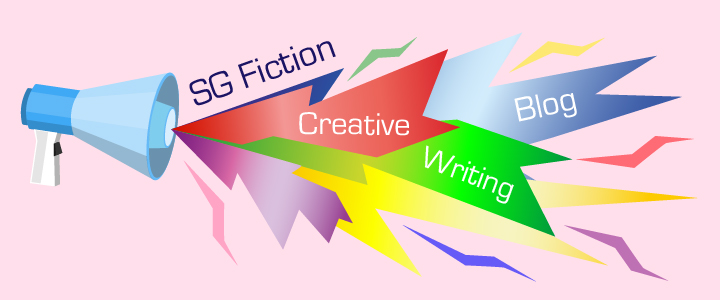Writing goals can help ensure you stay on-task whether you write fiction, non-fiction, poetry, or drama. Here’s how to set goals today!
In this Writing Goals article, you will find tips in the following areas:
- How SMART Targets can provide us with an added focus when it comes to planning, writing, or redrafting our books,
- Why goals that are specific, measurable, achievable, relevant, and time-bound can compartmentalise the targets we compose,
- Why accepting exceptional circumstances can give us a break when life, or pandemics, get in the way.
Read the rest of the Writing Goals article and consider how you can use structured targets in the months and year ahead.
Setting writing goals are essential to ensuring you meet targets. Whether you are a beginner writer or someone who has written multiple books, sitting down to compose realistic, achievable targets is vital. By putting plans in place, it could mean the difference between finishing your work and running out of steam.
As a teacher by profession, I have worked with learners of all ages. It doesn’t matter if the learner is a six-year-old or an adult, if the teacher can help them to structure a series of goals they can see a clear target that can be the focus of attention for the months ahead.
Authors are no different here. Considering many of us are in a position where we can’t write our fiction books, poetry, or scripts professionally, it means we will need to fit our passions in around real-life careers and family commitments. If we find that there isn’t much free time to commit to writing, it can mean we forget where we are and lose focus on the task at hand.
In this creative writing blog, I will set out a series of tips that you can follow to set concrete writing goals for the months and year ahead. Look to the remainder of 2020 as an opportunity to be more productive and nail down the creative writing tasks ahead of you.
Develop SMART Writing Goals
Some of you may have heard of the term SMART targets before, but I swear by them as a writer when devising writing goals for the months and year ahead. Considering I worked in education for over twelve years, it’s hard to silence them in my mind.
As a writer, you will understand the challenges and limitations of your work and home life. Therefore, you will know how difficult it is to fit valuable writing time into your everyday life.
It is this balancing act that will determine how much progress you will make on your first and, in turn, the quality of the redrafting process after that. This means you may have to make allowances for particular challenges and look to iron out the details in later drafts.
Whichever way you look at it, your focus is to finish the book around everything else in your life. By setting a series of realistic and SMART targets, you will achieve more, have better self-esteem, and stand a better chance of holding a finished product at the end of it all.
Specific
By focusing on a specific target that is linked to writing your book, it means you will have a clear goal that is defined and concrete at the end of the road. Generally, I like to focus on targets based around the 5 W’s (Who, What, Where, When, and Why). Then, in turn, how they are considered when creating specific goals. Examples can include:
- ‘Who’ Writing Goal: I want to define who my main characters are.
- ‘What’ Writing Goal: I want to write the first chapter of my novel, so I can at least say I have started it.
- ‘Where’ Writing Goal: I need to plan out a precise setting for my book.
- ‘When’ Writing Goal: My book is set in X date. Therefore, I need to research that time.
- ‘Why’ Writing Goal: I am writing this book because…
By asking ourselves questions, like those above, we can drill down to the core of what it is we are trying to achieve. Once we do this, we can remove some of the potential doubts or distractions that can lead us away from our end writing goal.

Measurable
This writing goal is more straight-forward to define that some others. By measuring your progress concerning word count, you will be able to track how well you are doing. This is an approach taken with the NaNoWriMo website, and writers regularly post their progress with word count.
It is one of the great joys I get from social media when I see authors and poets clock up words when writing their books, especially when they are young writers. Such resources are excellent outlets for young people when seeking motivation and measurable writing targets to spur them on to meet an end goal of X thousand words.
In the end, by checking off the daily, weekly, or monthly tallies, you will get such a morale boost from seeing those words rack up and the chapters fall.
Achievable Writing Goals
When you choose a writing goal, it has to be something that can be achieved. If you set your sights too high, you will experience disappointment more often. This is where your morale may take a dip, and you may give up with your book altogether.
It is here where an achievable writing target can help you taste success and strive to check off more targets in the weeks and months ahead. However, the writing target you set should be challenging enough so that you push yourself. If a goal is too easily achieved, it can have an equally adverse effect. For example:
- Positive Achievable Goal: I have an hour a day to write. Therefore, I feel I could get one thousand decent words written in that time if all goes well.
- Negative Achievable Goal: I have an hour a day to write. Therefore I feel I could get two hundred words written and have time to edit it.
In the positive goal, you focus on writing and getting words down on the page. In the negative goal, you are already looking to finish the piece before you start tearing it apart again in the edit. If you have X time to write, think of setting goals that are achievable if you actually work hard, not slack.

Relevant
In relation to writing, you need to utilise your time effectively and ensure you work on goals that are relevant to a particular area of the book you are developing. This will help to ensure you get the task immediately at hand completed rather than procrastinating or being distracted by another project on the horizon.
We have all been guilty of allowing a secondary project to flutter into our minds from time to time. However, if you start planning book two before finishing the first draft of book one, you may be writing, but not in a relevant manner.
Time-bound
Give yourself a deadline. By doing so, you will have a line that must not be crossed. As self-published or independent writers, you set your timelines. This means you have to be extra disciplined with your deadlines and the steps towards the end goal.
Whether you decide to have a date that you finish your entire book, or smaller, more manageable deadlines for 25% or 50% of the book to be completed, it doesn’t matter. Only by drawing a line in the sand, you have a demarkation in the wilderness. Use it and push yourself to achieve it.
If you marry this target up with the other targets in the SMART plan, you will set a realistic timeline for what you hope to achieve. By putting too much pressure on yourself, it can have a detrimental effect and cause you to panic and develop a level of anxiety over the writing process as a whole.
Writing Goals: The Takeaway
I love writing. Whether it is composing these creative writing blog articles for fellow writers to help work on their craft or writing Search Engine Optimised website copy for clients, I get to structure and write texts for multiple purposes.
Yes, I know that writing books like Inside Iris and Anna’s Awakening are a passion, but it excites me to think of finishing Anna’s story in the IRIS Trilogy in the year ahead. By working from home and having two young children, I also see the importance of setting clear, strategic writing goals. These goals give me focus and an added determination to check off the targets I have placed on the road to writing book three, four, or five.
With Covid lockdown, I know that some of my writing goals have fallen by the wayside. However, in the months ahead, I know I will dust them off, re-evaluate where I am, and finally finish my Hexingham Chronicles short story collection. Only then will I feel content that 2020 wasn’t a complete washout, and I was able to achieve where I may have put the pen down and walked away.



